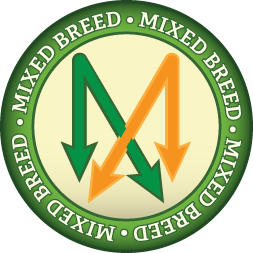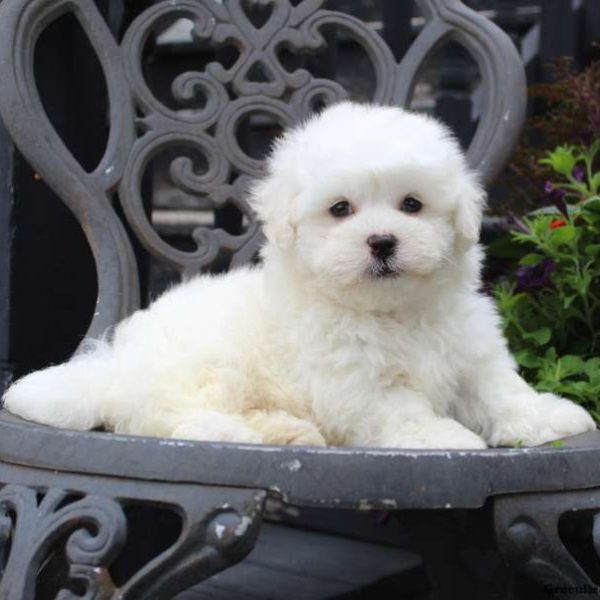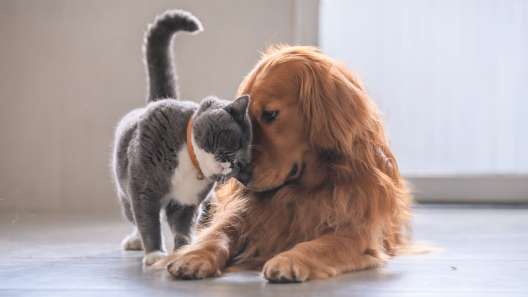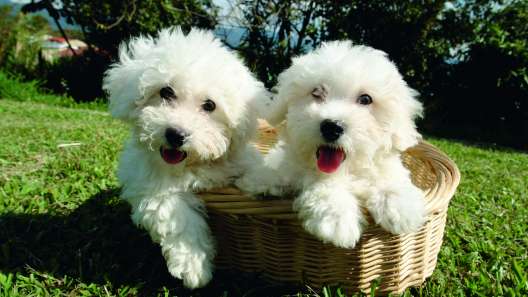
-
Activity Level:
moderate
-
Shedding Level:
moderate
-
Grooming Level:
moderate
-
Trainability:
high
-
Good for Novice Owners:
high
-
Adaptability:
high
-
Kid/Pet Friendly:
often
-
Prey Drive:
low
-
Watchdog:
aware
- Average Size: Small
- Average Lifespan: 12-15 years
Bichon Mix Dog Breed Information
Overview
Temperament
Adaptability
Health
Owner Experience
Grooming
Activity Level
Size
Life Span
The Bichon Mix is a mixed dog breed that is not currently recognized as a designer dog breed. These puppies are a cross between a Bichon Frise and another dog breed. As such, they can take on traits from one parent or a combination of traits from both parents.
In order to get a better idea of what to expect in your puppy, make sure you ask the breeder about the other breed in the cross. You can also spend some time with the mother to get an idea about what size to expect in your puppy as well as a hint at potential temperament.
The Bichon Frise is known for being the quintessential companion dog and lap dog. They tend to be gentle, love to cuddle, and are very playful. They also tend to get along fabulously with children, other dogs, and other pets. Should your Bichon Mix take more after their Bichon Frise parent, they should have a similar temperament.
They could have any or all of these characteristics or inherit more traits from the other parent breed in the mix. Before deciding on a Bichon Mix puppy and bringing them home, have a conversation with the breeder about the other parent breed to get a feel for the potential temperament your puppy could have.
The Bichon Frise is a highly adaptable dog breed and your Bichon Mix should be as well. In general, they should be able to adapt well to apartment living or to a larger home as long as they get enough attention and exercise.
Bichon Frise do not like to spend a lot of time alone because they love their families and you should expect nothing different with your Bichon Mix. They also should do well in most climates. As with any dog breed, they are sensitive to extreme temperatures. Asking the breeder about the other parent breed can give you a good idea of what to expect.
Mixed dog breeds can inherit the health concerns from one, both, or neither of their parent breeds. On the Bichon Frise side, potential health concerns can include bladder infections, eye disorders, luxating patellas, and allergies. You’ll want to make sure you ask the breeder about the other parent breed in the cross so you know what to keep an eye out for.
Reputable breeders will screen their stock to avoid passing on disorders to puppies. So, in addition to asking about the other parent breed in the mix, also ask about the genetic and health history specific to both parents.
The Bichon Frise is a highly trainable dog breed that is eager to please and loves to perform. Should your Bichon Mix puppy take after their Bichon Frise parent, they will also be easy to train and may also be difficult to housebreak because they are a small dog.
As long as the other parent breed in the cross is also highly trainable, the Bichon Mix should be a good fit for owners of all experience levels. Regardless, they will respond best to positive training methods focused on praise and rewards. Also, puppy training and obedience classes are generally a plus and are great opportunities for socialization.
Grooming requirements could vary with your Bichon Mix. Although the Bichon Frise has a low-shedding coat that can be hypoallergenic, their coat also requires daily brushing and monthly professional grooming.
Depending on the other dog breed in the mix, you could have a lower maintenance coat that is still low-shedding or you could have a high maintenance coat that might still shed – it all depends on the other dog breed and which parent your puppy gets its coat from. You should be able to get a good idea about what to expect by asking the breeder about the other parent breed and looking at the grooming requirements for that breed.
Regardless of coat type, you will need to care for your Bichon Mix’s nails, teeth, and ears. Cutting your dog’s nails on a monthly basis is usually sufficient to keep them from growing too long. Brushing your dog’s teeth or using an enzyme toothpaste every day helps prevent dental diseases like gum disease and tooth decay. Checking your dog’s ears weekly and carefully cleaning them as needed can help prevent ear infections.
The activity level of your Bichon Mix may vary depending on the other parent breed in the cross. In general, a Bichon Frise has a moderate activity level and is known for having short bursts of high energy. Daily walks plus some playtime is usually plenty for a Bichon Frise. Your Bichon Mix may require more or less exercise depending on the other dog breed in the mix.
The Bichon Frise is a small dog that stands 9-12 inches tall and weighs 7-16 pounds. Your Bichon Mix could be bigger or smaller depending on the other parent breed, so you want to make sure you ask the breeder about the parents. Looking at the mother dog may also give you a general idea about the potential size of your Bichon Mix once they are fully-grown.
A Bichon Frise generally lives 12-15 years and you could likely expect something similar for your Bichon Mix. The other parent breed in the cross may affect this range or may not. Talking with the breeder can help give you an idea of how much it could be affected, if at all.









